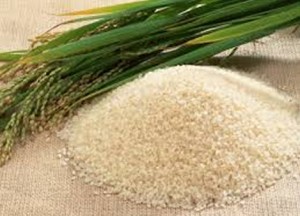We don’t evade tax – Small scale rice dealers
 The Small Scale Rice Dealers Association of Ghana (SSRIDA), on Tuesday described as “shocking”, a news report that its members are engaged in tax evasion through smuggling of the commodity through the inland ports.
The Small Scale Rice Dealers Association of Ghana (SSRIDA), on Tuesday described as “shocking”, a news report that its members are engaged in tax evasion through smuggling of the commodity through the inland ports.
“Before the ban of our activities on November 1, 2013, can the Ministry of Trade and Industry (MOTI) say with authority that smuggling of all manner of goods and services was not taking place at the country’s inland ports and other points of entry,” Mr Yaw Korang, National Co-ordinator of SSRIDA asked.
A statement issued in Accra in response to the publication attributed to MOTI, SSRIDA called on the ministry to publish the full report including the arrests made so far to enable the public to see the full picture.
The statement said so far as the association is concerned the ban on inland importation of rice is in force and for than one and half years its members are bearing the consequences.
Members renewed their call for forensic auditing of all rice imports, which were cleared under warehousing.
The association said this is important to ensure transparency and accountability in the rice industry, which members believe is embroiled in a lot of irregularities.
The statement said on January 28, 2014, MOTI received a report from the Customs Division of Ghana Revenue Authority, about rice imports through the Western Frontier-Sunyani Collection.
It said the report, which was addressed to the Chief Director at the ministry was headlined: “Authenticating copies of SAD forms and assessing impact of rice imports through the Western Frontier-Sunyani Collection”.
It claimed that the exercise, which targeted SSRIDA members took the team members to Gonokrom, Kofi Badukrom, Nkrakwanta and Osei Kojokrom.
“All copies of entry forms submitted by the MOTI for verification were genuine and originated from the stations indicated; all relevant taxes were paid; values applied conformed to values given by Commissioner per memorandum of August 3, 2013, and revenue from rice imports is a major source of tax for the Sunyani Collection,” the statement said.
It said despite these findings the Deputy Minister of MOTI, Mr Murtala Mohammed Ibrahim was quoted in a media report that SSRIDA members do not honour their tax obligations, and this was part of the reasons why inland importation of rice was banned by the ministry.
It said SSRIDA is calling for forensic auditing of rice importation because the major players in the industry who are large scale rice dealers bring their goods and store them at bonded warehouses.
SSRIDA noted that on October 24, 2013 there was a media report that more than 280 private and public companies have been cited for allegedly evading the payment of taxes amounting to 367 million dollars over a seven-year period.
These anomalies, which happened at bonded warehouses was uncovered by a presidential taskforce.
The statement asked that two years down the lane what due dilligence have been performed to ensure that the situation has been streamlined?
“Since November 1, 2013, small scale rice dealers have been denied the right to do business, but what shows that those allowed to do so are serving the national interest?”
The statement said members are of the view that proper consultation was not done before they were asked not to continue with their trade hence the need for forensic auditing of rice importation for the public to judge whether the move was of national importance.
The rice dealers called for the publication of the SAD report, which exonerated them of any underhand dealings, as well as total ban of rice imports to protect national interest.
SSRIDA said it would use all legitimate means including legal action and street protests to name and shame those behind the banning of their legitimate trade.
Source: GNA
